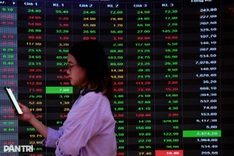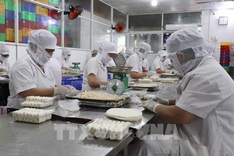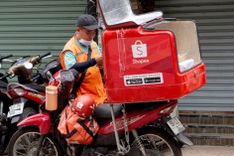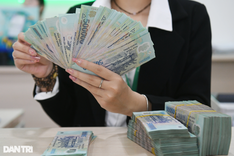Despite public concerns over unsafe vegetables, an official in charge of agro product quality control told DTiNews in an interview that only 6% of marketed vegetables are unsafe.

Nguyen Nhu Tiep, Director of the Ministry of Agriculture and Rural Development's Department of Agro-forestry-Fishery Quality Assurance
Nguyen Nhu Tiep, the Director of the Ministry of Agriculture and Rural Development's Department of Agro-forestry-Fishery Quality Assurance, said currently Vietnamese people are finding it hard to tell which vegetables are safe due to the lack of product labeling.
Recently, public concerns have been raised over sales of unsafe vegetables, especially Chinese products. What’re your comments about this?
I have not heard about unsafe Chinese vegetables being rampantly sold in the market. We need scientific methods to assess product safety. Annually we often test thousands of vegetables samples nationwide. Assessment results from the last three to four years have found that only from 4%-6% of tested vegetables contain unacceptable levels pesticide residues. The rate is the same as in other regional countries such China and Thailand, but is considered high in developed markets, where they have applied strict and advanced food safety control methods. These are countries as Japan, the European countries and the US. We are working on bringing down this figure in Vietnam. However, it would be untrue to say that unsafe vegetables are widely sold on the market.
Unsafe vegetables seem to be an old topic, but the situation has yet to improve much. What are the reasons?
Food safety for vegetables has been improved recently, but the results are still modest due to the lack of product labeling, confusing consumers and hindering management. We have set up strict quality control systems and the government has issued a regulations on punishments over violators of food safety laws and hygiene regulations. Vegetables producers that are at level C would be given a certain time to correct their practices, fined and have their operation licenses revoked if they are found to have committed two violations. Fines reach up to VND200 million (USD9,462) for an enterprise and VND100 million (USD4,731) for an individual.
Even though market watchdogs have inspected and found several violations they have yet to make public the names of violators, which has resulted in a lack of deterrence and confused consumers. What do you think about this?
This is a problem and we are actively looking for ways to improve the situation. It’s necessary to draw out regulations and policies to foster labeling for products sold in the market. It’s easier to do with processed products, but a bit more difficult with fresh products such as vegetables, fish, shrimp and meat. Vegetables prices may increase when some of these issues are corrected.
It’s essential to have policies and regulations that encourage producers and traders to label their products in order to help consumers understand the quality of the products they are buying. We’ll also conduct inspections and classify vegetables producers into three categories: A, B, and C, making the information public. Producers should include information about the origin of their products so that consumers can decide which ones to buy. This is a good mechanism to help protect consumers’ rights and encourage producers to ensure product safety.
We’ll also create policies to support producers and traders in setting up preliminary processing, packaging, labeling and certification. Consumers should opt to use high quality products to foster the development of labeled foods.
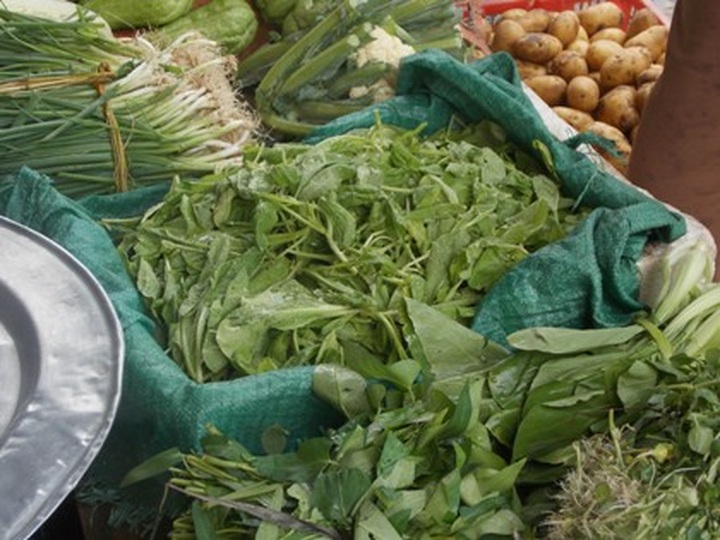
More policies needed to foster safe vegetable production in Vietnam
The management at vegetables wholesale markets in Hanoi is rather loose. What will relevant authorities do to improve this situation?
The situation mainly results from the lack of product labeling, which hinders tracking of specific product origins. A qualified product should belong to a standard supply chain and any substandard practices at any phase could result in unsafe products. The market is just one phase of the chain. It’s important to make labels for products, as it’s the best way to foster management, raise consumer awareness and protect consumers rights. Currently consumers find it hard to recognise which vegetables are safe because most products are still unlabeled.
Due to financial pressures, many vegetables growers opt to use a large amount of pesticides and growth stimulants despite potential health risks. How can we improve farmers’ awareness and protect consumers’ rights?
In fact, many farmers are aware of the health risks from abuse of pesticides and growth stimulants thanks to increasing education on the matter. However, they yet to change their practices because it means less money for them. To improve the situation we need smart and effective management methods. We’re encouraging the application of Good Agricultural Practice (VietGAP) to ensure product safety and hygiene. Producers and traders also receive support to set up pre-processing, packaging, labeling and marketing their products.
I advise people to use labeled vegetables and say no to unlabeled ones. It’s impossible to ban unlabeled products from the market right now as we’re still at the beginning of the effort and there are few labeled products. Consumers play an important role in fostering the development of labeled products. Producers and traders would change their practices if awareness were improved and came with more benefits. Once safe vegetable producers sell more product at higher prices, earning more money, many others would follow suit.
Thank you very much!











